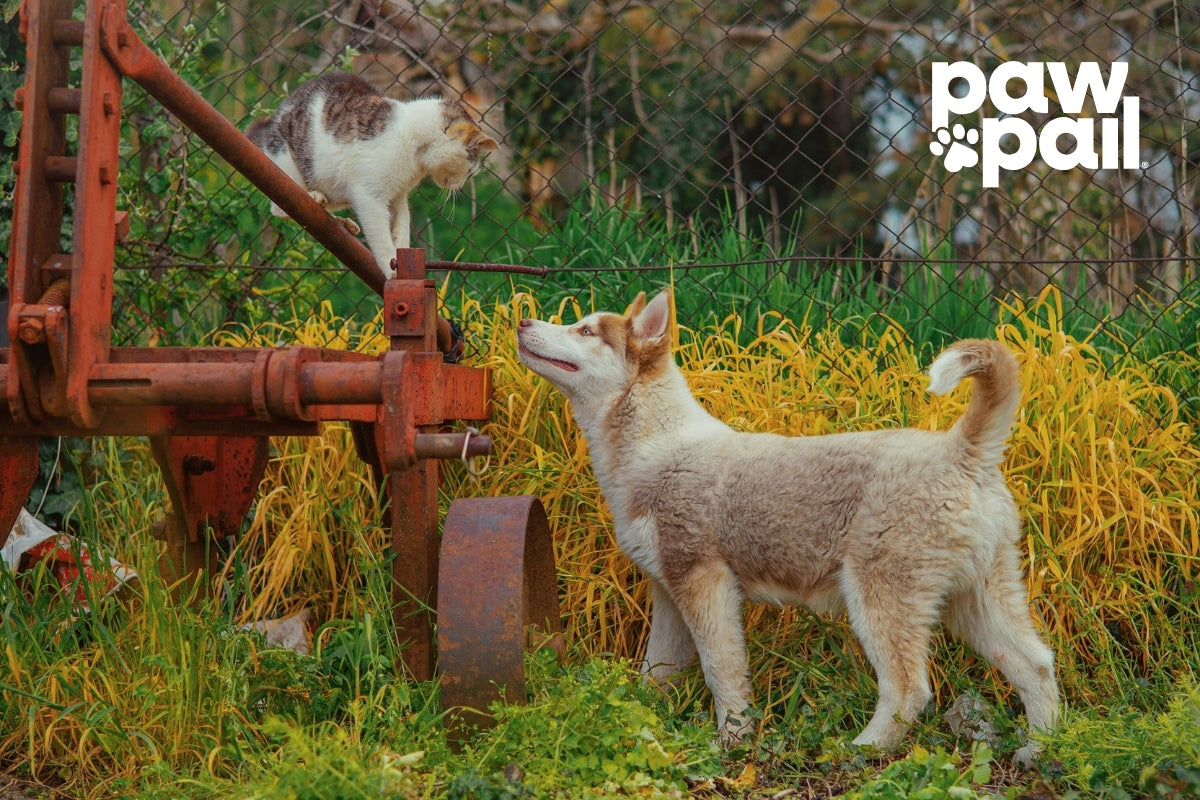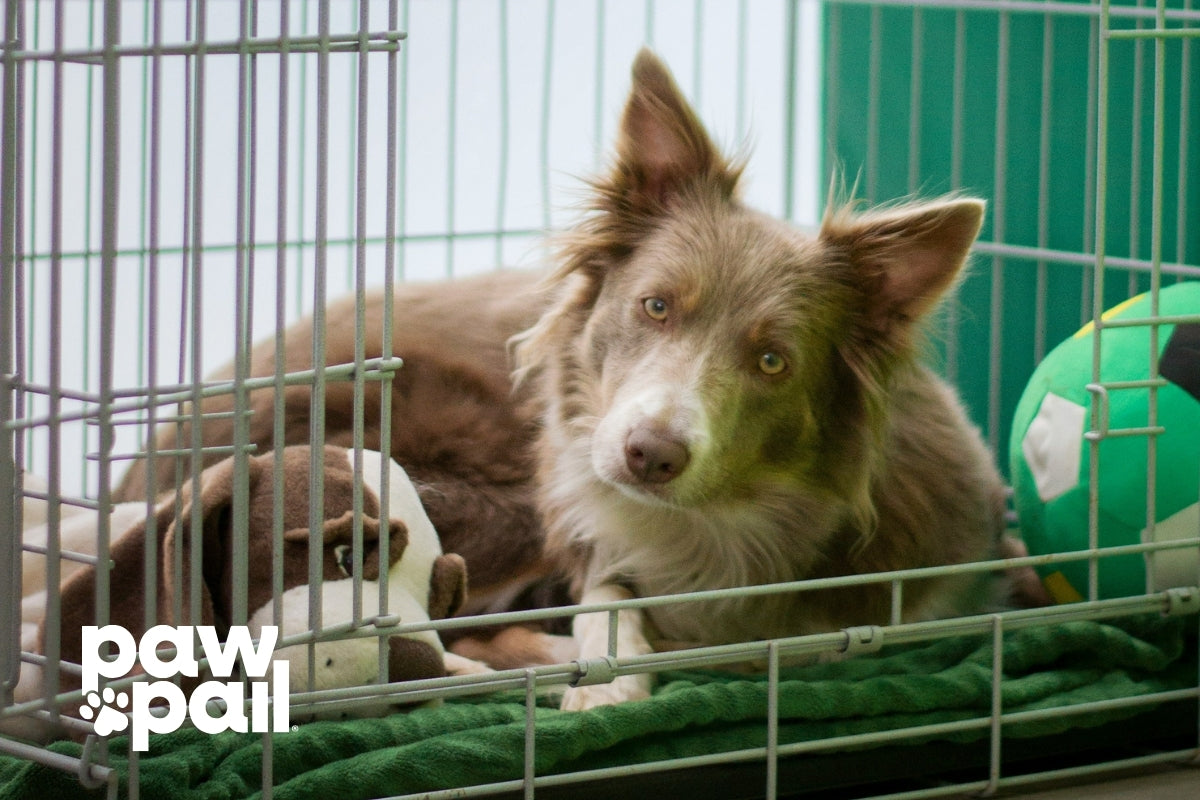As a devoted dog owner, you're likely attuned to the nuances of your furry companion's well-being. From their energy levels to their appetite, you keep a watchful eye on anything that deviates from the norm. One of the less glamorous but equally important indicators of your dog's health lies in their stool. While the spectrum of healthy dog poop typically ranges from shades of brown, an unexpected green hue can understandably raise concerns.
Unraveling the Potential Causes
The appearance of green in your dog's poop can stem from a range of factors, varying in severity from a temporary dietary quirk to a sign of a more significant health concern.
Grass and Green Plant Matter
One of the most frequent and generally harmless reasons for green dog poop is the consumption of grass or other green plant material. Dogs, for various reasons (ranging from boredom to mild stomach upset), often nibble on grass during their outdoor excursions. The chlorophyll, the pigment responsible for the green color in plants, can pass through their digestive system relatively unchanged, tinting their stool a noticeable green. If your dog occasionally presents with green poop and is otherwise healthy and behaving normally, this is the most likely explanation.
Green Foods and Treats
Just as certain foods can affect human stool color, the same holds true for our canine companions. Some commercially available dog foods or treats may contain artificial green dyes or a significant amount of green vegetables. If your dog has recently started a new food or has been indulging in green-colored treats, this could be the reason behind the change in their stool color. Reviewing the ingredient list of their food and treats might provide the answer.
Ingestion of Green Objects
Dogs are notorious for their indiscriminate eating habits. If your curious canine has ingested a non-food item that happens to be green, such as a crayon, a piece of a toy, or even a small amount of green-colored playdough, this can lead to green poop. It's crucial to be mindful of items within your dog's reach and to take steps to prevent them from ingesting anything potentially harmful.
Ingestion of Green Rodenticide
While less common, the ingestion of green-colored rodenticide is a serious and potentially life-threatening cause of green dog poop. Rodenticides are highly toxic to dogs and can cause internal bleeding and organ damage. If you suspect your dog has ingested rodent poison, even if they are not exhibiting other symptoms, immediate veterinary attention is paramount. Do not delay in seeking professional help.
The Speed of Digestion
The normal digestive process involves the production of bile, a fluid produced by the liver that aids in the digestion of fats. Bile is initially greenish-yellow in color. As it travels through the intestines, it undergoes chemical changes that eventually turn it brown. If food passes through the digestive tract too quickly, such as during episodes of diarrhea or other gastrointestinal upset, the bile may not have sufficient time to be fully processed, resulting in greenish stool.
Certain Medications
Some medications, particularly certain antibiotics or antidiarrheal drugs, can alter the color of a dog's stool. If your dog is currently on medication and you notice a change in their poop color, it's worth discussing this with your veterinarian to determine if it's a known side effect of the medication.
Dietary Transitions
A sudden change in your dog's diet can sometimes disrupt their digestive system and lead to temporary changes in stool color and consistency. If you have recently switched your dog's food and notice green poop, it could be a temporary reaction as their system adjusts. Gradual dietary transitions are always recommended to minimize digestive upset.
Recognizing the Red Flags
While occasional green poop may be harmless, consult your vet if it persists beyond a day or two, especially without a clear dietary cause. Seek immediate help if the green stool is accompanied by lethargy, weakness, loss of appetite, vomiting, diarrhea (with or without mucus/blood), changes in stool consistency, abdominal pain, or altered defecation frequency. Any green stool in puppies or suspicion of toxin ingestion also warrants prompt veterinary attention. Don't delay in seeking professional advice if you have any concerns.
Navigating the Veterinary Visit
When you consult your veterinarian about your dog's green poop, be prepared to provide them with detailed information about your dog's recent diet, behavior, and any other symptoms you have observed. It's also helpful to note the frequency and consistency of the green stools.
Your veterinarian will likely perform a thorough physical examination of your dog. To aid in diagnosis, they may recommend one or more tests. One of them is a fecal examination. This involves analyzing a sample of your dog's stool under a microscope to check for the presence of parasites, such as Giardia, or abnormal bacteria that could be causing gastrointestinal upset and the change in stool color.
Blood tests can provide valuable information about your dog's overall health, including organ function and the presence of any infections or inflammation. In some cases, your veterinarian may recommend imaging studies such as X-rays or ultrasound to visualize your dog's internal organs and identify any potential abnormalities.
Keep Your Green Poop Cleanup Clean
Understanding the potential causes of green dog poop is crucial for responsible pet ownership, prompting timely veterinary care when needed. Regardless of the color or consistency, proper disposal of your dog's waste is essential for hygiene and a pleasant environment. Make cleanup a breeze with Paw Pail, the odor-controlling dog poop disposal system. Its durable design and effective filtration help keep your yard fresh and free from unpleasant smells, ensuring that managing your dog's health is as easy and sanitary as possible.



